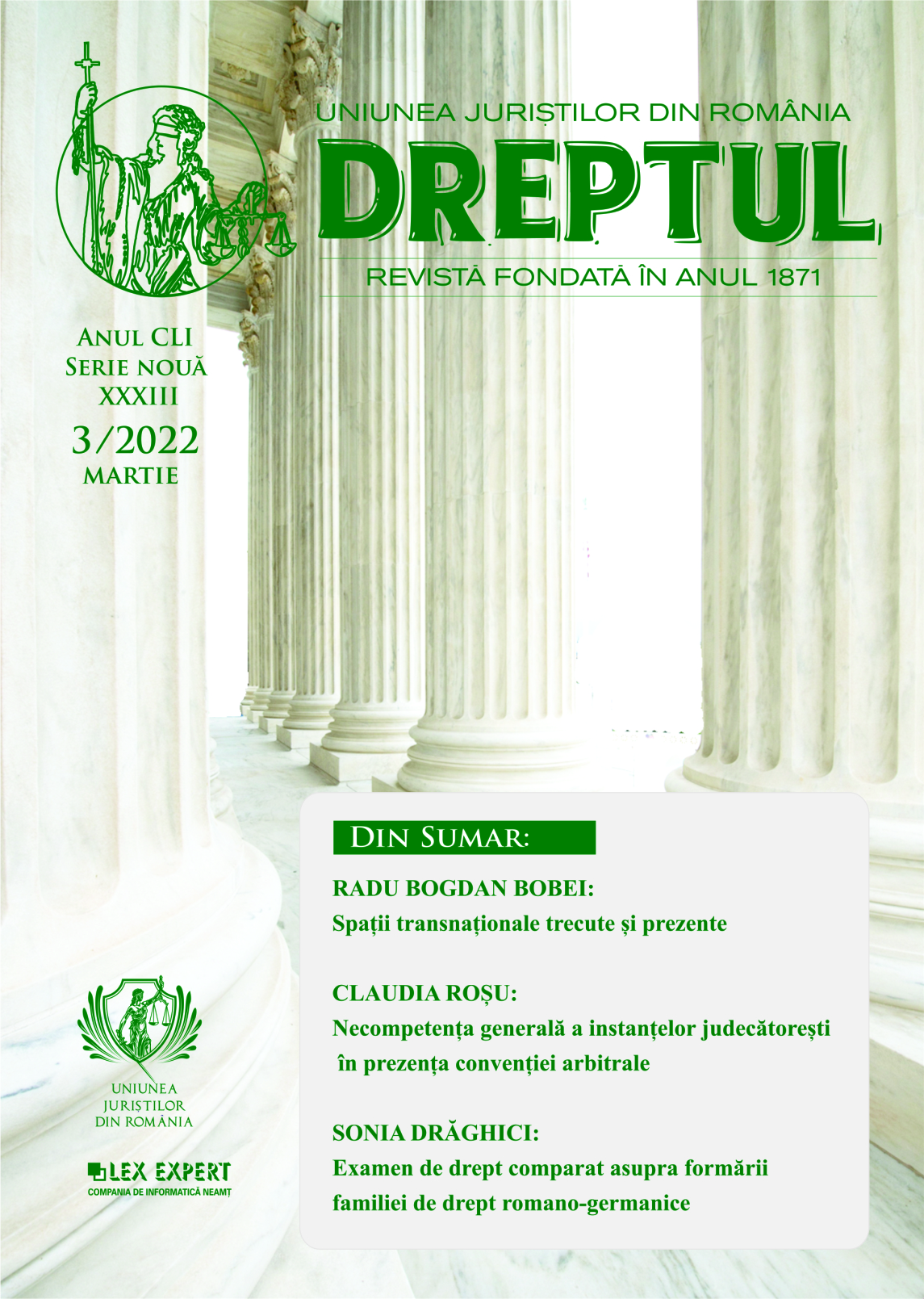The study examines the factoring contract as an easy and quick method of financing of the adherent by way of turning to account of the unmatured claims. The factoring, regulated internationally, has been recognized and defined in the Romanian legislation, but without any regulation of its legal system.
After the analysis of the framework contract and of the actual factoring contract, the study examines and explains the forms of the factoring contract and their finality, as well as the constitutive elements of the contract, with reference to the specific of the contracting parties and of the participants, as well as to the derived object, concerning certain, liquid, assignable, but not exigible claims.
In the approach of the effects of the contract there have been analyzed the rights and obligations of the contracting parties and the relations generated by the contract. In respect of the
obligations of the adherent, attention was paid to the transmission of the right over the claims by means of sale and to the achievement of the conventional subrogation and the moment of
transmission of the right over claims, depending on the distinction between old line factoring and the maturity factoring. Likewise, it has been analyzed the legal and conventional obligation of warranty of the adherent in correlation to the risks assumed by the factor, related to payment default of the claims and the insolvency of the assigned debtor. In the same context, it has been also treated the problem of notification of the debtor concerning the assignment of claims, highlighting the consequences of the notification with regard to the enforcement of claims, as well as the aspects of opposability of the assignment to the debtors and to third parties, with reference to recording of the transmission of the universality of claims in the Electronic Archive of Security Interests on Movable Property.
The rights and obligations of the factor have been examined from its perspective of owner of the invoices accepted for payment and of the takeover by the latter of the task of collection of claims from the clients of the adherent, in close correlation with the factor’s function of financier of the adherent, by the payment of the claims assigned before maturity. The patrimonial factor-adherent relations have been integrated into the role of the current account opened by the factor for the payment of claims assigned and of the discount covered by the adherent, resulted from the difference between the nominal and conventional value of the claims assigned. By the correlated mechanism of crediting-debiting, the current account also fulfils its accounting function of crediting the adherent with the amounts that the factor collects as mandatary with regard to the invoices not accepted for payment and the function of debiting with the amounts owed by the debtor, following the regression for the claims for which the adherent has conventionally assumed the risk of payment default or of insolvency of the debtor.
The effects of factoring contract are analyzed also in terms of its impact in case of insolvency of the adherent, including of the consequences related in this case to the turning to account of the claims assigned with regard to the assigned debtor. It was treated also the reverse-factoring mechanism, as well as the relations between the adherent, the factor and the assigned debtor, in relation to the effects of the notification in terms of the turning to account the claim right of the adherent, of the factor and of the payment obligation of the assigned debtor. In the final part of the study, there have been outlined the legal features of the factoring contract, with special outlook on the character intuitu personae of the contract, on the character of adherence contract and of random contract, in the hypothesis that the factor assumes the risk of payment default or of insolvency of the assigned debtor.
The scientific approach led to the classification of the legal nature of the factoring contract as a complex of contracts and legal figures different, but convergent, with its own physiognomy and autonomy, which differentiates the factoring contract from its components. The particular configuration of the factoring contract, which defines it as a whole with its own legal system, has brought to attention the need for demarcation of the contract from its components.
CONTRACTUL DE FACTORING
15.00lei


